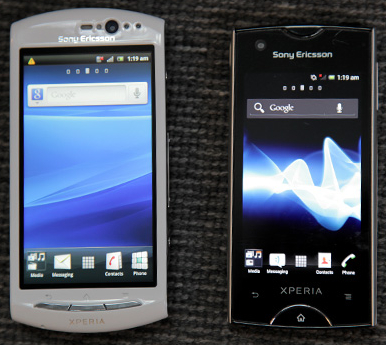Sony: You might not really want Ice Cream Sandwich after all

I have not been hesitant to give Google a hard time over the abysmal Android update situation, and have noted that updates seem to be awfully hard for partners to roll out. Even Google has a hard time getting the Ice Cream Sandwich (ICS) update for its flagship phone, the Nexus S. In a recent blog post, Sony pointed out that due to the way ICS works some users might be better off sticking with Gingerbread.
The blog post by Sony points out the major differences between the older Gingerbread and the spiffy new ICS. It makes it clear that the pretty new version is not without cost in how it hits device hardware much harder than the older version.
Another interesting thing is that many apps use slightly more RAM in ICS. For example, the web browser is quite intensive, and our measurements indicate that it uses 20-30MB more in ICS compared to Gingerbread. All in all, there are a lot of changes that together result in greater RAM requirement.
Since the web browser is one of the most-used apps on a smartphone, that sounds like a heavy load on some hardware. Then there is is situation in ICS that increases app startup time according to Sony:
Another change in ICS compared to Gingerbread is that Google has moved a lot of the SQL handling from the native to the Java layer. In our internal studies, we have seen that read and write operations to the SQLdatabase takes longer time, which slows down the apps. Many applications perform a lot of SQL operations when started, which greatly impacts the start-up time.
ICS enables hardware acceleration which sounds like a good thing, but may not be as far as Sony is concerned.
When we performed internal tests on our applications, we saw that the Settings app consumed 1-2MB more RAM, and actually took longer time to start with HW acceleration, compared to without. Once the app is running, the UI is HW accelerated, but unless the app performs advanced graphics, the user will not see the difference. Another effect of the hardware acceleration is that it can make the battery drain faster in some cases. An example of this is video playback, where the hardware acceleration requires every video frame to be run through the GPU, thus making the system use more power than it would have without HW acceleration.
The bottom line from Sony is that rather than rush into upgrading its smartphones to ICS when available, users should think twice about it. If your phone is running well with Gingerbread, that might be good enough given the harder hit ICS makes on the hardware.
[via PhoneArena]
Related news:
- How to fix the Android update mess: Paid updates
- New Year’s resolution for Google: Fix the Android update situation
- Cutting through the FUD about Windows Phone updates
- Microsoft is in the driver’s seat for Windows Phone updates
- AT&T’s business model: why your mobile bill keeps going up
- The Flawed Android Update Process; Too Many Cooks
- Will the new Android consortium fix the update fiasco?
